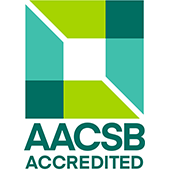Master of Health Administration Curriculum
The MHA addresses healthcare industry culture and advanced business skills.
A minimum of 30 hours (professionals with prior health administration experience) or 31 hours (all other students) are required for graduation. The MHA academic requirements consist of:
Foundation Courses
The MHA program is a part of the Management department within the College of Business. Students will graduate from this program with knowledge of basic business tenets. For students coming into the program with little to no undergraduate background in business, it is important to have a solid foundation in accounting and marketing by taking the foundation courses listed below. It is not necessary to have completed these courses before starting the MHA program; however, it is recommended that you take them as soon as possible because they are prerequisites for two of the core courses.
If you have taken the undergraduate courses ACG2021 and/or MAR3023 at FAU (or an approved equivalent at another institution), the corresponding foundation course is not required if you earned a grade of "C" or better.
Important: Foundation courses may not be taken for credit. These courses are in addition to the 30 or 31 hours required for the MHA. Once admitted to the program, the foundation courses must be taken at the graduate level.
| Course | Course Description | Credits and Advising Notes |
|
Financial Accounting Concepts (ACG6027) |
Principles applicable to the accounting cycle, asset valuation, income determination, financial reporting, basic business taxes, and owner's equity. Available only to graduate students lacking an undergraduate course in accounting. |
3 credits Take in first available semester Students should prioritize completing foundation courses. Courses are not available during the summer semester. |
| Marketing Functions and Processes (MAR6055) | A conceptual treatment of the basic processes influencing the design, implementation, and management of the marketing function. Open only to graduate students lacking an undergraduate course in marketing. |
3 credits Take in first available semester Students should prioritize completing foundation courses. Courses are not available during the summer semester |
Core Courses (24 or 25 Credits):
The core consists of a business communications course, several healthcare industry courses, and a one-credit internship. (The internship may be waived for students with significant professional health administration experience.)
Virtually everyone earning any type of masters degree in the College of Business takes Graduate Business Communications, and the organizations that hire our graduates appreciate it. As the name implies, the course is a refresher, or reclamation, of your business writing and presentation skills.
The remaining core courses offer knowledge about the culture of the healthcare industry and doing business in the healthcare industry. There are courses in management, marketing and planning, finance, research methods, law, policy, and one that provides a thorough overview of all the pieces that make up the industry.
The one-credit internship requirement is a key part of the program. It is required of most students but may be waived for students who have held significant management positions (hire/fire authority and budget responsibility) in healthcare organizations for two or more years. Once you have a general idea of the sector of the healthcare industry you find most appealing, we can help you locate an organization in that sector here in South Florida. The internship requires 15-20 hours per week working with upper level management learning about how the organization does business and the continuing balance between regulation, revenue, and responding to patient needs.
| Course | Course Description | Credits and Advising Notes |
| Graduate Business Communication Applications (GEB6215) | Writing and speaking strategies linked to (1) critical thinking for problem analysis/solution and persuasive proposals and (2) research for decision-making. Students submit papers and presentations from core courses. |
3 credits Take in first semester |
| Introduction to Healthcare Systems (HSA6103) | Introduces students to the field of health services administration and to the responsibilities of managers of health care organizations. Includes the analysis of both the history and the structure of health delivery systems. |
3 credits Take in first semester. Prerequisite or Corequisite: GEB6215 |
| Planning and Marketing in Healthcare (HSA6108) | Study of the rapidly evolving U.S. healthcare market and its impact on the structure and functions of healthcare organizations. Examines changing patient demographics such as population aging, technological developments in such areas as pharmaceuticals, and government regulation of patient care. |
3 credits Prerequisite or Corequisite: HSA6103 |
| Organizational Behavior in Healthcare (HSA6118) | Study of internal operations of healthcare organizations varying from hospitals to nursing homes, outpatient clinics, and assisted living facilities. Examines issues such as physician credentialing, utilization review, quality of clinical care, and accreditation of services. |
3 credits Prerequisite or Corequisite: HSA6103 |
| Health Policy (HSA6152) |
An examination of the process of formulating and implementing health policy. Emphasis is on the utilization of health services research in the policy formulation process at the federal level.
|
3 credits Prerequisite or Corequisite: HSA6103 |
| Healthcare Finance (HSA6175) | Introduces health administration students to the public and private sources of payment for health care in the U.S. Includes Medicare, Medicaid, and managed care options. |
3 credits Prerequisite or Corequisite: HSA6103 |
| Health Law (HSA6425) | A comprehensive examination of health law issues affecting healthcare providers. Reviews case law decisions, statutes, and regulations involving such issues as patient care liability, malpractice, workmen's compensation, and legal responsibilities of health professionals. |
3 credits Prerequisite or Corequisite: HSA6103 |
| Research Methods for Healthcare Management (HSA6707) | Provides students with an appreciation of the function of research in the provision of healthcare services, a set of skills for conducting health sciences research, and an opportunity to practice applying those skills to a current issue in the healthcare field. |
3 credits Prerequisite or Corequisite: HSA6103 |
| *Health Administration Internship (HSA6855) | Internship requirement for M.H.A. candidates. Work 15-20 hours per week in an organization that diagnoses, produces products for, treats, or cares for frail, sick, or injured people, or makes grants to or pays for care in such organizations. During the internship, conduct a project on a subject of use to the organization. |
1 credit Prerequisite or Corequisite: HSA6103 Recommended towards the end of the program as internships can sometimes lead to full-time positions after graduation |
*May be waived for students with significant prior professional experience in health administration
Electives (6 credits):
Choose two courses from the following list. Some options are offered in Health Administration or business while others are offered in other FAU colleges. Students who wish to take an elective outside of the College of Business will need to speak to an advisor in the college that offers the course for permission.
| Course | Course Description | Advising Notes |
| Health Administration | ||
| Global Issues in Healthcare Delivery (HSA6125) | Offers a comprehensive overview of current global and public health issues. Students explore healthcare systems and challenges to population health in selected countries worldwide and investigate and discuss the impact of emerging, re-emerging, communicable and non-communicable diseases. | 3 credits |
| Managed Healthcare (HSA6126) | Provides an introduction to the field of managed care. Topics include the history and structure of managed care, contracting, state and federal regulations, utilization review and disease management. | 3 credits |
| Special Topics (HSA6930) | Graduate level study of a selected area of health care management. Topics will vary. | 3 credits |
| Business | ||
| Venture Creation (ENT6016) | A comprehensive study of the elements of entrepreneurship, focusing on the critical factors involved in the initiation of a successful venture. Course provides an overview of the entrepreneurial process beginning with the initial idea through start-up, growth, and harvesting the business. | 3 credits |
| Entrepreneurial Skills for Managers (ENT6226) | The course explores issues and problems facing the entrepreneur or intrapreneur in daily business operations. The focus of this course is upon achieving greater entrepreneurial competencies with an emphasis on personalizing an empowerment plan and leadership model. |
3 credits |
| Human Resource Management (MAN6156) | A graduate seminar integrating the entire human resources management field through a review of the key concepts of human resource development and personnel and labor relations with discussion of applications to specific problem areas. | 3 credits |
| Data Analysis for Managers (QMB6603) | Introduction to statistical analysis of data using interactive computing, including topics such as randomness, cross-sectional regression, auto-regression, experiments versus observational studies, causal interference, and analysis of univariate and multiple time series. | 3 credits |
| Nursing | ||
| Influencing Healthcare Policy through Nursing: Advanced Nursing Situations (NGR6892) | Examines issues and trends in the development and impact of policy on the health care delivery system. An emphasis is placed upon the process of legislative health policy and the role of professional nursing in influencing the policy-making process. |
3 credits Speak with a graduate advisor in the College of Nursing for permission |
| Public Administration | ||
| Introduction to Public Administration (PAD6053) | An analysis of the contemporary political, economic, and social institutions and processes in which the profession of public administration is practiced. |
3 credits Speak with a graduate advisor in the College of Arts and Letters for permission |
| Public Policy and Non-Profit Organizations (PAD6143) | This course seeks to acquaint students with the theoretical and practical issues confronting nonprofit organizations. The course systematically examines the ways in which the public policy process both supports and regulates the activities of nonprofits and the ways in which nonprofits seek to affect public policy governing their behavior. |
3 credits Prerequisite: PAD 6142 or permission of instructor Speak with a graduate advisor in the College of Arts and Letters for permission |
| Fundraising for Non-Profits (PAD6206) | This course examines the history, principles, and practical application of resource and capital campaigns, and the ethical responsibilities among individuals, corporations, governments, and public donors. |
3 credits Prerequisite: PAD 6142 or permission of instructor Speak with a graduate advisor in the College of Arts and Letters for permission |
| Grant Writing and Project Management (PAD6233) | Practical considerations in obtaining funds for delivery of services to client groups, covering local, national, foundation, corporate, and state funding environments. Students will be required to explore funding in the social, human, and justice services |
3 credits Speak with a graduate advisor in the College of Arts and Letters for permission |
| Social Work | ||
| Advanced Context of Social Work Practice Within Healthcare (SOW6055) | Focuses on the context (policy, organization, technology) of social work practice and explores practice decisions that structure the helping relationship across multiple settings. |
3 credits Speak with a graduate advisor in the College of Social Work and Criminal Justice for permission |

















